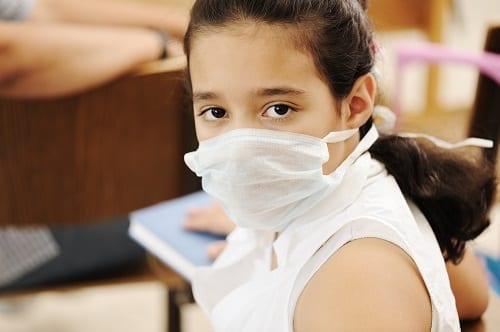Every once in a while, there is an outbreak that invades the human population, leaving people all over the world worrying about the wellbeing of themselves and their families. Although pandemic influenza occurs infrequently, preparing to respond to a pandemic outbreak can be complex. Unlike a seasonal flu, people have little to no immunity to a pandemic flu. According to the Centers for Disease Control and Prevention, the definition of a pandemic flu is “a global outbreak of a new influenza A virus.” It occurs when a new influenza virus emerges and is spread easily between humans. Because of the lack of immunity in the human population for a pandemic flu, it can be extremely difficult to prevent it from spreading at a rapid rate. The pandemic influenza virus can cause severe illnesses and/or deaths all over the world.
Facts About Pandemic Flu
- 1. Influenza pandemics occur when:
- A new influenza A virus is detected.
- It is spread easily between humans.
- It causes serious illnesses and deaths.
- The population has little to no immunity to the virus.
2. Influenza pandemics have occurred several times a century since the Middle Ages. In the 20th century, there were three pandemic flus: in 1918, 1957, and 1968.
3. It is difficult- almost impossible- for scientists to predict when a pandemic will occur.
4. Scientists are currently monitoring the bird influenza situation in Europe and Asia (H5N1) closely. If the virus becomes more easily transmissible to humans, it has the potential to be a pandemic influenza.
5. There is no pandemic influenza vaccine since all the viruses are different, and it is impossible to predict a strain. Therefore, there is usually not a vaccine for the first 6 months of a pandemic outbreak.
Goals of a pandemic planning checklist:
- Prevent the spreading of germs.
- Contain the virus as much as possible.
- Treat those suffering with influenza.
- Cover your mouth and nose with a tissue when sneezing and coughing.
- Throw away tissues immediately after they have been used.
- Wash your hands with soap and water or an alcohol-based hand sanitizer on a regular basis.
- Keep at least three feet of distance between yourself and anyone who is sick.
- Avoid touching your eyes, nose, and mouth.
- Stay at home if you are sick.
- Where a mask when at a hospital or doctor’s office when you are sick.
- If someone in your family or household is sick, separate them from the rest of the family, except for a designated care giver.
- Disinfect doorknobs, switches, handles, computers, and any common, shared surfaces.
- Wash everyone’s clothes in hot water.
- Wear disposable gloves when cleaning up after sick people.
- Face masks (N95 respirators)
- Vinyl gloves
- An eye shield frame
- Disposable eye shields
- Disposable thermometers
- Hand sanitizer solution
- Sanitizer surface spray
- Sanitizer surface wipes
- Personal antimicrobial wipes
- Tissue pack
- Biohazard bags
What can we do to prevent getting infected with a pandemic flu virus?
Once a pandemic outbreak has been detected and announced, the best way to prevent getting the virus is to limit the spreading of germs and treat those who have been infected. Here are some tips that can help prevent the spreading of germs during a pandemic outbreak:
Pandemic Flu Planning Checklist
The most essential part of a pandemic planning checklist is having the materials you need to help prevent the spreading of the disease. Be prepared with an infection protection kit that is equipped with the essentials needed to reduce the spreading of germs.
What should be on your pandemic flu planning checklist?
Influenza pandemics are impossible to predict. That is why it is critical to be prepared to respond to a pandemic outbreak at any time. Keep you and your family safe by planning ahead and stocking up on all the necessary materials needed to prevent the spreading of a pandemic virus in your household.
